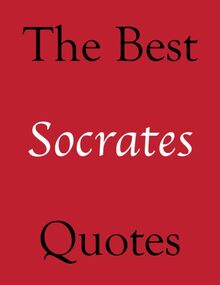-
 Univers
Univers
-
 Ebooks
Ebooks
-
 Livres audio
Livres audio
-
 Presse
Presse
-
 Podcasts
Podcasts
-
 BD
BD
-
 Documents
Documents
-
- Cours
- Révisions
- Ressources pédagogiques
- Sciences de l’éducation
- Manuels scolaires
- Langues
- Travaux de classe
- Annales de BEP
- Etudes supérieures
- Maternelle et primaire
- Fiches de lecture
- Orientation scolaire
- Méthodologie
- Corrigés de devoir
- Annales d’examens et concours
- Annales du bac
- Annales du brevet
- Rapports de stage
La lecture à portée de main
Vous pourrez modifier la taille du texte de cet ouvrage
Découvre YouScribe en t'inscrivant gratuitement
Je m'inscrisDécouvre YouScribe en t'inscrivant gratuitement
Je m'inscrisEn savoir plus
Vous pourrez modifier la taille du texte de cet ouvrage
En savoir plus

Description
Sujets
Informations
| Publié par | Crombie Jardine Publishing Limited |
| Date de parution | 06 avril 2017 |
| Nombre de lectures | 0 |
| EAN13 | 9781326997793 |
| Langue | English |
Informations légales : prix de location à la page 0,0210€. Cette information est donnée uniquement à titre indicatif conformément à la législation en vigueur.
Extrait
NOTE
The beauty of e-readers means that a variety of text fonts and type sizes can be selected, according to the reader’s preference. This text has been prepared in Palatino (medium, regular) and so the layout probably works best in this font.
VOLTAIRE 1694-1778
Born in Paris on 21 November 1694, François-Marie Arouet, pen name Voltaire, was a French philosopher, playwright, poet and historian. A prolific and influential French Enlightenment writer in various forms (from novels to scientific works), he was particularly outspoken when it came to the subjects of civil liberties and religious intolerance.
Arouet was born into a middle-class family, his father a successful lawyer with many high-profile clients and contacts at the royal court. Unfortunately, Arouet’s mother died when he was seven years old. From 1704 to 1711 he was educated at the Lycée Louis-le-Grand, a public secondary school in Paris, where he learnt Latin, Theology and Rhetoric under Jesuit teaching and was a very gifted student. Having a particular appreciation for literature, by the time he left school, Arouet had set his heart on becoming a writer. His father, however, had different ideas and wanted him to follow in his footsteps as a lawyer. So Arouet was sent to Caen to study law.
In 1713 Arouet’s father found him a job as Secretary to the French Ambassador to the Netherlands, the Marquis de Châteauneuf. Unfortunately, whilst in The Hague, Arouet fell in love with Catherine Dunoyer, a French Protestant refugee, and their affair was such a scandal that Arouet was forced to return to France.
In 1717 Arouet’s somewhat self-inflicted bad luck continued; his highly controversial satirical work got him into trouble, one verse mocking the Duke of Orleons landed him an eleven-month prison sentence in the Bastille. In 1718 he was released from prison. At this time he adopted the name Voltaire, an anagram of the Latin spelling of Arouet (Arovet) plus the initial letters of ‘the young’ (li). His debut play Oedipe (an adaptation of Sophocles’ Oedipus ) opened to immediate success.
In 1723 La Henriade (The Henriade) an epic poem about Henri IV of France, religious fanaticism, and the French Civil Wars of the 16th century, was published clandestinely (Voltaire had been refused a license to publish it in France) and was a hit. Voltaire’s stance on religious intolerance had been made clear.
In 1724 the play Mariamne , a tragedy, opened and initially it received a poor reception and was withdrawn. Voltaire reworked it and the following year it was well received at the Comédie Française.
In 1726 Voltaire, taunted by a nobleman Guy Auguste de Rohan-Chabot, challenged the latter to a duel. On 17 April de Rohan-Chabot’s family, by whatever means, had Voltaire imprisoned without trial or the opportunity to defend himself. Voltaire managed to get his punishment changed to exile and on 2 May he made his way to Britain.
During his two and a half years of exile in Britain, Voltaire was influenced by the writings and ideas of Isaac Newton and John Locke, as well as by earlier English literature, notably the works of Shakespeare. The influential aristocrat Lord Bolingbroke was already a friend of Voltaire’s and he helped him to mix with the literati of the time: the English poet Alexander Pope, the art historian and politician Horace Walpole, the playwright and poet William Congreve, and Dr Jonathan Swift of Gulliver’s Travels fame, to name but a few. In 1727 Voltaire attended the funeral of Isaac Newton.
In 1729, on his return to France, Voltaire helped form the syndicate that bought up the French lottery. This secured his financial status and the Court of Finances allowed him to take control of the money his father had left him (that had hitherto been tied up in trust).
In 1730 he started writing the satirical poem La Pucelle d'Orleons (The Maid of Orleons) but did not complete it.
In 1732 his play Zaïre , a tragedy in five acts, met with success.
In 1733 in England Voltaire’s series of essays under the title Letters Concerning the English Nation was published. This covered his positive views on the British attitude towards government, literature, science, and religion. Voltaire was an admirer of British culture, seeing Britain as a model of political freedom and religious tolerance. The following year, when the essays were published in French as Les Lettres Philosophiques (The Philosophical Letters) they were seen as disrespectful to France, a criticism of the French way of life, an attack on the Catholic church (Voltaire had praised the plurality of religions in England), pro-Newtonian and anti-Cartesian, etc., and the books were burned in public. Voltaire had to flee Paris. He sought refuge in the home of the Marquis (Florent-Claude) du Châtelet, the Château de Cirey. Here he fell in love with the nobleman’s young wife Emilie and they went on to have an affair that lasted sixteen years.
During this time in Cirey, Voltaire continued to write plays, but turned his attentions more towards science and history, having been influenced by the theories of Isaac Newton during his time in Britain. Emilie, interested and gifted in mathematics and science and also a follower of Newton’s theories (translating his Mathematical Principles of Natural Philosophy into French), helped Voltaire in his studies on physics and metaphysics. As well as being intelligent and very curious, Emilie was a good conversationalist and this was a very stable time for Voltaire.
In 1736 Voltaire spent time in Holland, and the tragedy Mahomet was produced.
In 1738 the scientific book Eléments de la Philosophie de Newton (Elements of the Philosophy of Newton) was published, promoting Newtonianism over French Cartesianism.
In 1745 Voltaire, who was beginning to find life at the château somewhat unfulfilling, returned to Paris. He was courtier to the French royal family at Versailles, became popular at court, and was appointed as Royal Historiographer. He took a lover in his widowed niece, Marie-Louise Denis (née Mignot). They were to remain together until his death. Meanwhile, Emilie also took another lover, but she died in childbirth in 1749.
In 1746 Voltaire was elected to the Académie Française.
In 1747 the philosophical work Zadig was published. This focused on the themes of good and evil, and fate.
In 1749 the comedy Nanine (written in verses of ten syllables) was produced. This was a parody of Samuel Richardson’s Pamela .
Voltaire, a great correspondent, had been exchanging letters with Frederick II of Prussia. In 1750, at the king’s invitation, Voltaire went to Potsdam to the Prussian court and was given a pension and the role of Chamberlain. Voltaire instructed the king in poetry and verse (“My own duties are to do nothing. I enjoy my leisure. I give an hour a day to the King of Prussia to touch up a bit his prose and verse; I am his grammarian, not his chamberlain [...]”). Within a couple of years, Voltaire had grown fractious and quarrelsome. He offended the king’s favourite scientist (Maupertuis, who was also at court) with his satirical work Diatribe du Docteur Akakia, Médecin du Pape ... publishing it (albeit anonymously) against the king’s wishes. Frederick and Voltaire fell out and Voltaire left the Court.
Siècle de Louis XIV (The Age of Louis XIV), an historical work, was published in 1751. This is a seminal account of the political and cultural history of this period and a celebration of the life and times of the self-called Sun King. Voltaire explained, “I have called this the Age of Louis XIV, not only because this monarch patronised the arts much more than all the other kings, his contemporaries, put together, but also because he saw all the generations of the princes of Europe thrice renewed. I have fixed this epoch some years before the time of Louis XIV and have carried it down some years after his death, as this was, in fact, the space of time in which the human mind made the greatest progress.” Most chapters cover historical events, from “The States of Europe Before Louis XIV”, “The Civil War”, and “France Until the Death of Cardinal Mazarin, 1661” through “The Magnificence
-
 Univers
Univers
-
 Ebooks
Ebooks
-
 Livres audio
Livres audio
-
 Presse
Presse
-
 Podcasts
Podcasts
-
 BD
BD
-
 Documents
Documents
-
Jeunesse
-
Littérature
-
Ressources professionnelles
-
Santé et bien-être
-
Savoirs
-
Education
-
Loisirs et hobbies
-
Art, musique et cinéma
-
Actualité et débat de société
-
Jeunesse
-
Littérature
-
Ressources professionnelles
-
Santé et bien-être
-
Savoirs
-
Education
-
Loisirs et hobbies
-
Art, musique et cinéma
-
Actualité et débat de société
-
Actualités
-
Lifestyle
-
Presse jeunesse
-
Presse professionnelle
-
Pratique
-
Presse sportive
-
Presse internationale
-
Culture & Médias
-
Action et Aventures
-
Science-fiction et Fantasy
-
Société
-
Jeunesse
-
Littérature
-
Ressources professionnelles
-
Santé et bien-être
-
Savoirs
-
Education
-
Loisirs et hobbies
-
Art, musique et cinéma
-
Actualité et débat de société
- Cours
- Révisions
- Ressources pédagogiques
- Sciences de l’éducation
- Manuels scolaires
- Langues
- Travaux de classe
- Annales de BEP
- Etudes supérieures
- Maternelle et primaire
- Fiches de lecture
- Orientation scolaire
- Méthodologie
- Corrigés de devoir
- Annales d’examens et concours
- Annales du bac
- Annales du brevet
- Rapports de stage



















